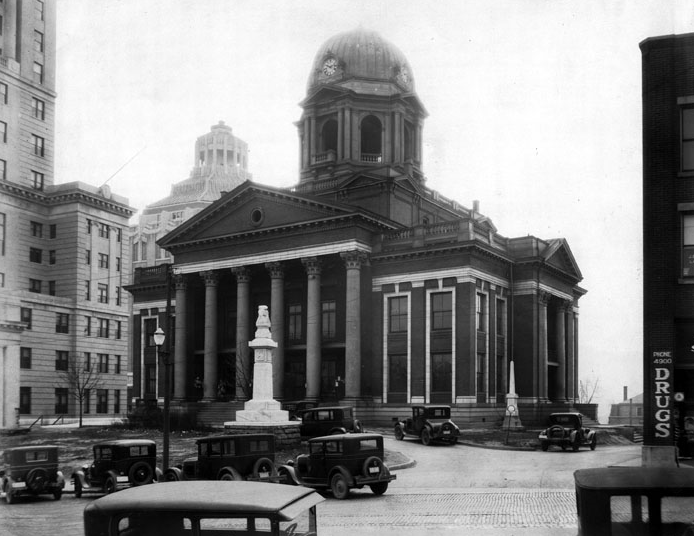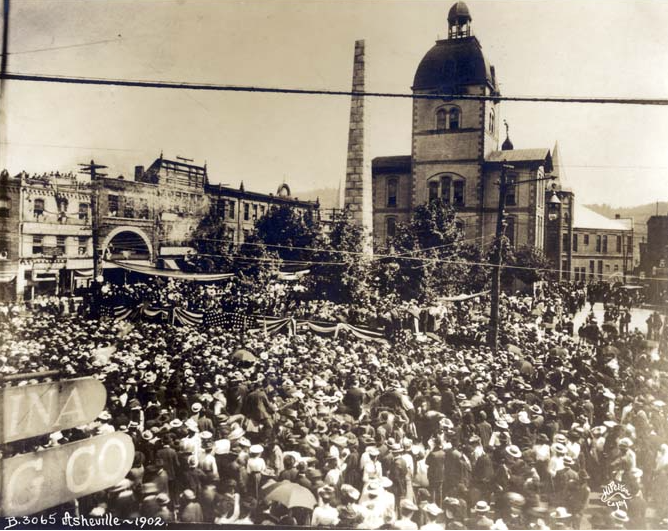Edwin Bedford Jeffress, owner of the Greensboro Daily News and mayor of Greensboro from 1925-1929, spent his formative years in Asheville. His parents moved the family of nine to the mountains in 1902. Upon their arrival, they rented the Old Kentucky home at 48 Spruce Street, from its then-owner, the Rev. Thomas Meyer. (The boarding house, made famous by Thomas Wolfe, would be purchased by his mother, Julia Wolfe, in 1906.)
In a 1950 Asheville Citizen article (“Jeffress, Former Newspaperman Here, Describes Asheville of 1908-11.”), Jeffress recalls growing up in Western North Carolina. Over the next several weeks, we will share excerpts from his recollections, beginning with Jeffress’ memories of the former courthouse.
Thanks as always to the Pack Memorial Library’s Special Collections, North Carolina Room for its assistance.
On March 26, 1950, Jeffress wrote:

I remember Asheville in the days when the Courthouse occupied the Square, centered about the Vance Monument. The Courthouse was later to be moved through the interest and influence of George W. Pack, to the Knickerbocker place on College Street where Mr. Harris operated a well-known boarding house in a brick house with spacious grounds. This was acquired for the new Courthouse site, and the new building was erected. It served until the present skyscraper building was erected.
…
The Square was always the center of Asheville traffic, as it was the custom in the early days for the population to concentrate around the Courthouse. There the citizens of the various sections of the county met and exchanged news with each other. … Wagoners would bring along surplus hams and other country products to be traded. In the summer season, the covered wagons from Rutherford County would bring wagons loaded with Rutherford watermelons, the big round type of melon with a dark green skin and solid red meat. An ordinance of the city later required that all peddlers were to park on the eastern side of the City Hall. The market house was in the basement of the City Hall. There the meat and fish markets, as well as the green groceries still operated, hence the market was the center of attraction for the housewives of Asheville.
Next week, Jeffress revisits his time as an instructor at the former Bingham School.



Before you comment
The comments section is here to provide a platform for civil dialogue on the issues we face together as a local community. Xpress is committed to offering this platform for all voices, but when the tone of the discussion gets nasty or strays off topic, we believe many people choose not to participate. Xpress editors are determined to moderate comments to ensure a constructive interchange is maintained. All comments judged not to be in keeping with the spirit of civil discourse will be removed and repeat violators will be banned. See here for our terms of service. Thank you for being part of this effort to promote respectful discussion.